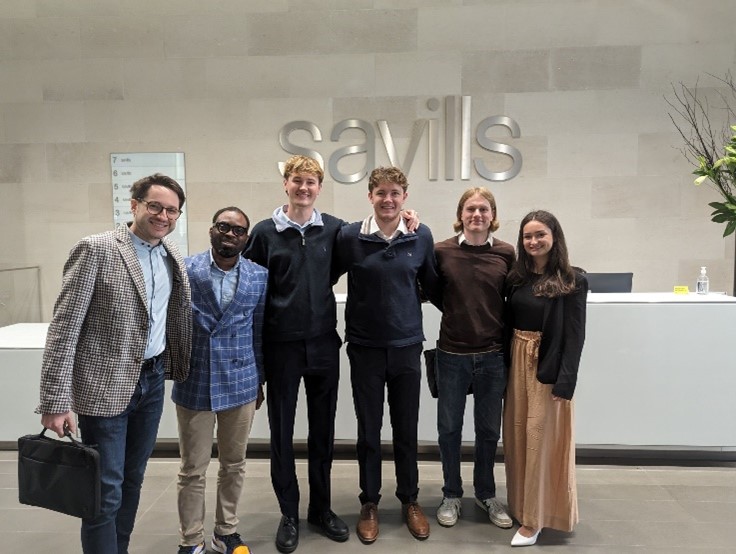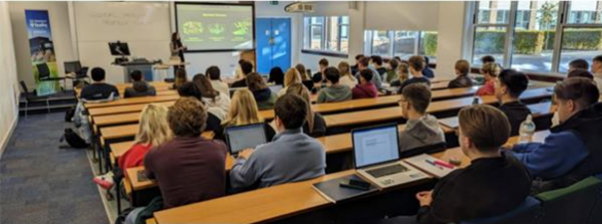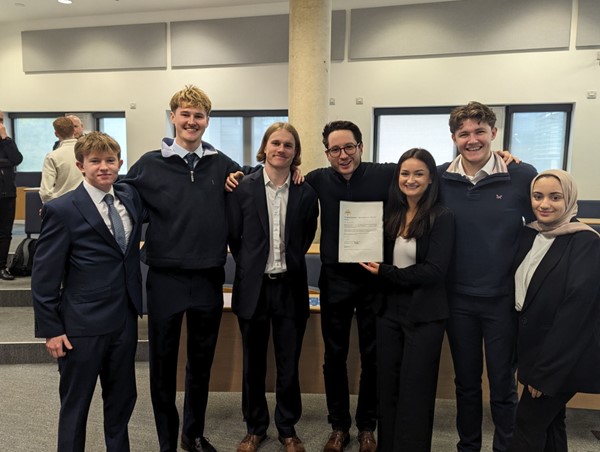By: Dr Matteo Borghi, Henley Business School, m.borghi4@henley.ac.uk

Overview
The Managing Change in the Real Estate Sector module was redesigned to embed entrepreneurship (the ability to identify and seize business opportunities) and technology literacy, aiming to bridge academic learning with real-world industry demands. The initiative significantly improved student engagement, understanding of PropTech (technology-driven innovation in Real Estate) trends and practical application of entrepreneurial skills, as reflected in enhanced student satisfaction and successful project outcomes.
Objectives
Foster students’ entrepreneurship skills (such as opportunity recognition, innovation, and problem-solving) and technology literacy, particularly in the context of PropTech (short for Property Technologies).
- Encourage creative problem-solving and the development of innovative business ideas.
- Enhance students’ practical understanding of industry trends through direct engagement with experts.
- Improve student confidence and readiness for entrepreneurial careers in real estate through authentic assessments.
Context
The Managing Change in the Real Estate Sector module was developed to address the evolving needs of the real estate industry, particularly the integration of technology literacy (the ability to effectively use and understand modern technologies) and entrepreneurial skills. It was introduced in response to industry demands for graduates proficient in PropTech (technology-driven innovation in Real Estate) and capable of innovative thinking. In this context, entrepreneurial skills refer to the ability to identify opportunities, adapt to changing circumstances, and implement creative solutions within the real estate sector. The module, which carries 20 credits, is compulsory for approximately 120 Level 5 students each year.
Implementation
To implement the module, several key steps were taken:
- Module Design and Collaboration: The curriculum was developed in collaboration with internal teams, including the Henley career services and the Henley Centre for Entrepreneurship, to ensure alignment with industry needs and academic goals.
- Guest Lectures and Forums: External experts were invited to provide insights into PropTech and entrepreneurship, culminating in the Global Henley PropTech Forum (GHPTF) where students engaged with industry leaders. In the GHPTF, we included a general Q&A and an interactive co-creation session where students collaborated with industry leaders to refine the business ideas they had developed with the seminar leader during the first six weeks of the module.
- Dragons’ Den Assessment: A competitive pitching event was organised, where student teams presented their business ideas to a panel of judges, simulating a real-world entrepreneurial experience. This event mirrored the format of the famous British television show Dragons’ Den, where aspiring entrepreneurs pitch their business ideas to a panel of investors (Dragons) seeking promising ventures. To prepare for the Dragons’ Den assessment, students engaged in weekly seminar sessions, mock presentations with cross-fertilisation between teams, and a dedicated ‘Pitching to Sell’ workshop.
- Continuous Feedback and Adjustment: Throughout the module, student feedback was actively solicited and used to make real-time adjustments, enhancing the learning experience and addressing concerns.
- Support Structures: The module included mentoring and support from faculty, promoting an environment conducive to innovative thinking and teamwork.

Impact
The module successfully achieved its objectives, as reflected in students’ positive feedback on experiential learning methods (4.3/5). Integrating entrepreneurship and technology literacy greatly enhanced students’ understanding of real estate and PropTech. This resulted in improved business propositions and heightened student engagement, praised by both internal and external contributors. An unexpected outcome was the module’s selection as the main compulsory team project for future students. Additionally, a student venture developed during the module was shortlisted in the European PropTech competition, demonstrating the initiative’s success in fostering critical real-world skills such as problem-solving, creative thinking, digital proficiency, and the ability to navigate the intersection of technology and business.
Reflections
The success of the module stemmed from its integration of real-world experiences with academic learning, enhanced by effective collaboration with industry experts and external events. Key elements included the Global Henley PropTech Forum and Dragons’ Den assessments, which provided students with invaluable exposure to real-world scenarios and feedback. The responsiveness to mid-module feedback and adaptation of content and support mechanisms significantly contributed to student satisfaction and engagement.

However, some challenges remained. Coordination issues with guest speakers and unexpected withdrawals from the Dragons’ Den highlighted the need for more robust contingency planning. Additionally, while student feedback on individualised guidance was addressed, further improvement in personal mentorship could enhance the learning experience. Future iterations could benefit from more structured self-assessment and additional real-world case studies to deepen students’ understanding and application of entrepreneurial concepts. Overall, the module demonstrated a strong capacity to evolve and adapt, ensuring its continued relevance and effectiveness.
Follow up
Since the module’s implementation, it has garnered additional industry support. Savills, a prominent global real estate services provider, has endorsed a revised version of the Dragons’ Den, featuring a grand final and a study visit for the winning team (see title image above). Additionally, an exclusive internship opportunity was offered by one of the Dragons. The 2024 winning team, Senspore, also achieved significant success by securing £3,000 for the best commercialisation idea for China at Henley Business School’s IDEAFEST student business idea competition.

Links
The published article can be downloaded for free from Innovations in Education and Teaching International.